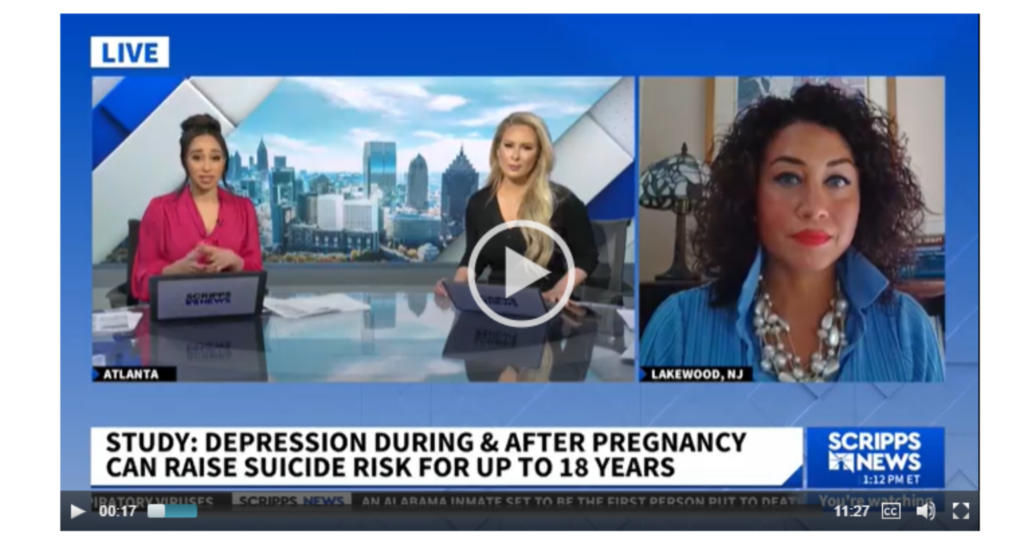In a recent discussion on postpartum depression on Scripps News Live, our CEO Dr. Tara Chalakani emphasized the importance of acknowledging the challenges of childbirth and motherhood, urging women to seek support and not feel ashamed of their feelings. She highlighted the need for increased awareness, regular screenings, and access to resources to ensure the well-being of mothers beyond the focus on the baby’s health.

Here are some highlights of the discussion. You can watch it in its entirety here:
- High Risk and Lack of Support: The discussion highlights the heightened risk of postpartum depression lasting for years after childbirth. Some women, unfortunately, fall through the cracks of the healthcare system, lacking the necessary support to understand and survive this challenging experience.
- Stigma and Screening Challenges: The stigma around discussing postpartum depression contributes to women not seeking help. The lack of strict screening and a reluctance to share exacerbate the issue, with pregnancy being a vulnerable time and women feeling defeated or ashamed for having these feelings.
- Duration of Depression: Postpartum depression can last for an extended period, even up to 15 years. Factors such as pre-existing depression, family history, and socio-economic conditions play a role. The prolonged duration emphasizes the need for ongoing support and awareness beyond the immediate postpartum period.
- Importance of Awareness and Resources: The conversation stresses the significance of raising awareness about postpartum depression, normalizing the discussion, and encouraging women to speak to their healthcare providers. Access to resources, regular screenings, and aftercare are crucial to addressing the mental health needs of mothers beyond childbirth.
Learn more about our mental health outpatient programs HERE.
###
